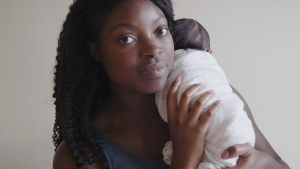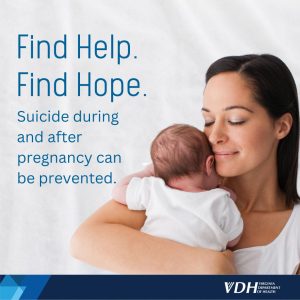Pregnancy-Associated Deaths due to Violence
The leading causes of pregnancy-associated deaths (PADs), as defined by the Centers for Disease Control and Prevention (CDC), are homicide, suicide, and drug overdose.
The Surgeon General’s Call to Action to Improve Maternal Health outlines strategies for states and localities to take to improve women’s health before, during, and after pregnancy as it relates to prevention of violence.
Pregnancy-Associated Death due to Domestic and Intimate Partner Violence
 Domestic violence is a pattern of abusive behavior. It involves an imbalance of power and control. An abuser uses hurtful words and actions to control a partner. Abuse, or threats of abuse, can be physical, sexual, financial, or psychological. This includes any behaviors that manipulate, embarrass, isolate, coerce, blame, or injure someone. Most often, the perpetrator of domestic violence is a current or former spouse or partner. Domestic violence can happen to anyone of any race, age, economic class, religion, or gender. It can happen to married couples, couples that are living together, or couples who are dating. Domestic violence can occur in heterosexual and same-sex relationships.
Domestic violence is a pattern of abusive behavior. It involves an imbalance of power and control. An abuser uses hurtful words and actions to control a partner. Abuse, or threats of abuse, can be physical, sexual, financial, or psychological. This includes any behaviors that manipulate, embarrass, isolate, coerce, blame, or injure someone. Most often, the perpetrator of domestic violence is a current or former spouse or partner. Domestic violence can happen to anyone of any race, age, economic class, religion, or gender. It can happen to married couples, couples that are living together, or couples who are dating. Domestic violence can occur in heterosexual and same-sex relationships.
Domestic violence may begin or intensify during pregnancy. Sometimes partners become upset or jealous if a new mom is focusing more on the baby. Even if a partner is stressed or unhappy, domestic violence is never the victim’s fault. Exposure to abuse can increase the mother's risk of physical and mental health issues. This includes substance misuse, depressive or suicidal thoughts, eating disorders, and chronic illnesses. Domestic violence also creates an economic burden due to increased medical costs.
Abuse can affect the unborn baby too. Pregnancy complications include preterm delivery, low birth weight, or death of the newborn. An abuser may not stop being abusive once the baby is born. Abused children may develop health and behavioral disorders as they get older.
Pregnancy-Associated Deaths Due to Violence Video
Find Help Find Hope
Suicide - Domestic and Sexual Violence Media Campaign
Pregnancy-Associated Deaths Related to Violence
 The following are potential warnings signs of abuse during and after pregnancy:
The following are potential warnings signs of abuse during and after pregnancy:
- Prevents you from going to pre-natal appointments or visiting the doctor
- Prevent you from seeing family or friends
- Act jealous of the baby
- Threaten to take the baby away after they are born
- Attempt to harm the baby by hitting, pushing, or twisting the stomach of the pregnant woman
- Question the paternity of the baby
- Continual criticism and insults of one’s parenting abilities
- Withhold money for basic needs and baby essentials
If you, or someone you know, is experiencing abuse, seek help from a trusted friend, family member, or healthcare provider. Trained advocates can provide resources and help make a safety plan to keep the mother and baby safe.
During your medical appointments, your healthcare provider may ask personal questions about your relationship. It is important that you feel comfortable being open and honest with your healthcare provider. Your answers are confidential and will not be shared with your partner, or family members. Your healthcare provider may screen you at many appointments to track changes. If you are experiencing abuse, your healthcare provider can connect you to support resources.
To find your local domestic violence agency, call 1-800-838-8238 or use the map tool on the Virginia Sexual & Domestic Violence Action Alliance website.
The following are potential warnings signs of suicide during and after pregnancy:
If you… |
You should… |
|---|---|
|
|
|
|
|
|
|
|
|
Call the National Maternal
|
If you… |
Get help now! |
|
Go to the local emergency room or call 911 for immediate medical related help! |
|
Call or text the Suicide and Crisis Lifeline at 988 to speak with a trained crisis counselor for free who can provide emotional support and linkages to additional resources. |

 Suicide - Maternal Health Campaign Toolkit
Suicide - Maternal Health Campaign Toolkit